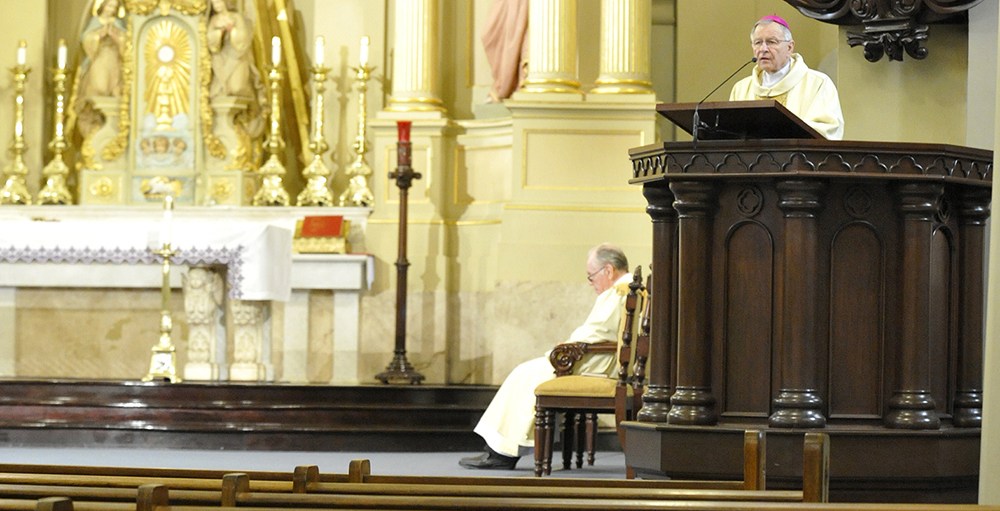Stories are appearing from around the planet of suddenly clean air and water. For example, as Francesco Delrio writes, “Venice hasn’t seen clear canal water in a very long time. Dolphins showing up too. Nature just hit the reset button on us.”
This is the last chance for humankind to change course in our age. The question is, will human consciousness have a radical reset, or will people return to business as usual when the pandemic is over?
The human madness that has been underneath, that’s been covered over by meaningless busyness and noise, has been brought forth into the open, into the light of day.
A pilot I know who flies for a major airline said, “We’re essential workers, and it’s important we fly even with empty planes.” Self-centeredness still rules, but it has become completely irrational.

Most people deny that there’s something metaphysical at work, and are reverting to form. Two New York Times pieces in the same day represent two sides of the same debased coin– “Where Is God In a Pandemic?” written by a Jesuit priest, and “Chin Up, Extroverts, We Will Crowd Again!” written by a post-grad party girl.
In the first op-ed, the priest intones, “In the end, the most honest answer to the question of why the Covid-19 virus is killing thousands of people, why
infectious diseases ravage humanity and why there is suffering at all is: We don’t know.”
That is dishonest. The truthful answer is that we don’t want to know. At least, Jesuit priests and popes don’t want to know, because their religious authority is threatened by insights into suffering and freedom from it.
The Jesuit rhetorically asks, “But if the mystery of suffering is unanswerable, where can the believer go in times like this?”
That is a willfully wrong question. The mystery of suffering is not unanswerable; indeed, suffering is not so mysterious at all. Pain is inevitable, but humans generate suffering. God has nothing to do with it.
Absurdly, the Jesuit then asks, “Can you believe in a God that you don’t understand?”
The sacred is found within, not outside us. Beliefs are childish things, impediments to understanding. The imperative is to understand oneself, not God. There is an actuality beyond beliefs fabricated by the human mind, but we can only commune with immanence in silence, which requires self-knowing.
Having been brutally brought up in the Catholic Church when the Mass was still in Latin (Mass every day before school, plus on Sunday), I learned as a young adult the meaning of the word ‘jesuitical.’
Misappropriated from the name of Jesus, the word Jesuit has two meanings. The first is “a member of the Roman Catholic Society of Jesus founded my Ignatius Loyola in 1534 and devoted to missionary and educational work.”
Followed immediately by the second definition, “One given to intrigue or equivocation.” In other words, the very antithesis of Jesus. The Jesuits have done some good things over the centuries, but Jesus would have nothing to do with them.
Paralleling the priest’s nonsense is an op-ed extolling masses of a different but not so dissimilar kind. In “Chin Up, Extroverts, We Will Crowd Again!” a sad young woman writes, “I live for moments of chaos and disorder and noise: concerts, convention centers, parades, amusement parks, live performances. They are my favorite places on the planet.”

“I understand that for many people, even some extroverts, the hot wild mass of bodies pressed close together is their version of hell. But to me, it is sacred.”
People who can only feel alive when absorbed by a throbbing mob, whether a Trump rally or at a rock concert, are inwardly dead. For the NYT to print such rubbish under the rationalization of a “diversity of views,” shows how confused its editors are.
Modern humans have been destroying the earth, laying waste to the web of life within which we evolved, and upon which, despite all our technological wizardry, we still depend for our survival.
Human activity has been put on pause, and humankind has been given a chance to change course. Will we seize it, or resume stupid and wasteful ways of life under the guise of the pursuit of personal happiness?
Perhaps in the past the cosmic mind could only bring about change through maximum death and the destruction of entire civilizations. In our age, the global pandemic is achieving maximum impact with minimum death and destruction.
Is this the end of civilization as we know it? Will we cling to its corpse, or create a true global civilization? It begins within each person who stands alone, and leaves the mob and mass mentality behind.
Martin LeFevre

